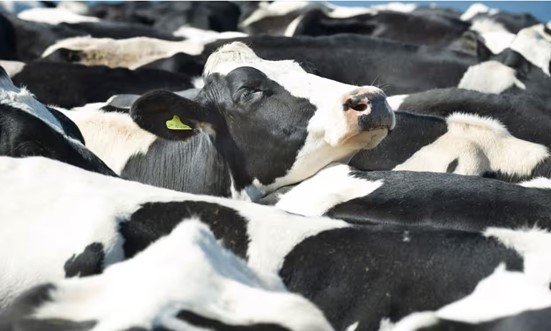
European Farming Lobbies Acknowledge Need to Cut Meat Consumption in Landmark Report
In a collaborative effort with environmental groups, Europe's farming lobbies have recognized the need to reduce meat consumption, marking a significant shift in agricultural policy discussions. A newly released report emphasizes the urgency for "ambitious and feasible" reforms in agriculture, calling for a balanced approach that promotes plant-based diets alongside livestock farming.
The report highlights that Europeans consume more animal protein than recommended by scientific guidelines, urging measures like better education, stricter marketing regulations, and voluntary buyouts of intensive livestock farms. Additionally, it advocates for financial support to help farmers transition to sustainable practices, including a proposed "just transition fund" for those most in need.
Commissioned by European Commission President Ursula von der Leyen to address earlier farmer protests, the report is expected to shape the future of EU agricultural policy. Von der Leyen noted that farmers' livelihoods and environmental goals must align, stating, "Only if farmers can sustain their livelihoods will they adopt more sustainable practices. And only by achieving our climate and environmental targets can we ensure farmers' future success."
While the report did not set specific targets for reducing meat production, it called for incentives to shift dietary habits. Recommendations include free school meals, more transparent labeling, and tax incentives for healthy, sustainable foods. Although some stakeholders wished for bolder moves regarding livestock, the report's comprehensive vision was widely praised.
Leading farming lobby Copa-Cogeca acknowledged the need for action but urged caution regarding the future of livestock farming. Similarly, the European Council of Young Farmers welcomed the constructive dialogue and viewed the report as a solid foundation for future reforms.
The report, a product of seven months of negotiations involving diverse stakeholders, aims to harmonize agriculture and environmental protection. Peter Strohschneider, who led the process, noted that the current system often pits agriculture against environmental sustainability, creating a "lose-lose" scenario. Reforming the EU's agricultural subsidies, which currently favor larger farms over sustainable practices, is seen as a key component of the necessary transformation.
While political debates around farming and environmental protection remain contentious, this report offers hope for a more balanced and sustainable future in European agriculture.